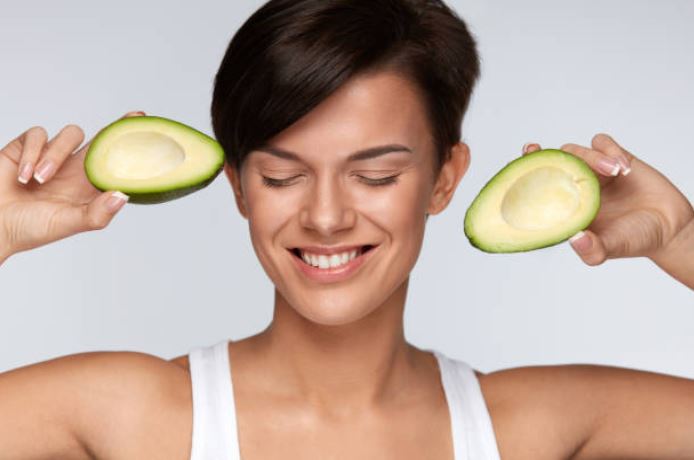


This largest organ of the body, the skin, doesn’t only protect us from germs; it regulates body temperature too. But very importantly, it is an indicator of what is taking place inside our body.
The skin can actually be telling you something about underlying health problems. If your detoxification organs; one such, the liver, are overloaded, it is the skin which has to do the extra work.
All those rashes we often see on people – acne, eczema, and rosacea – it is the skin trying to eliminate toxins from the body. For many older people, the lines around the mouth and eyes also tell their own story.
Natural products feed your skin
Many older people look at the fresh young faces of children and remember, too, when they had healthy, wrinkle-free, glowing skin. Too soon it is gone and the skin is dry, wrinkly, grey, and tired.
The sad thing is that many people are led to believe that healthy skin can only be achieved when you spend a fortune on expensive facial creams.
The manufacturers of these products know that they’re involved in a multi-billion dollar business and their miracle creams are doing precious little – just swelling the coffers of the manufacturers who go a-skipping and laughing all the way to the bank.
Many well-read people are realizing the truth and they’re looking at ways to pamper their skin naturally.
It is why many people, whether their skin is normal, dry or oily, are starting to look at botanical plant derived creams for their skins that are free from artificial fragrances, chemicals, and synthetics.
There are some foods that can actually damage the skin by causing inflammation, redness and angry breakouts. A toxic body begins to show telltale signs in the quality of the skin.
This applies to junk food too. If you’re overloaded with toxins, your complexion will be telling everyone this. Then again there are some foods that are so beneficial to the body they have to be good for the skin too.
When it comes to skin, what you put in is what you get out – and that’s food. But let’s look at some other important things for good skin:
Dehydrated skin is wrinkled, lifeless, and it also has an unnatural color. Puffy eyes are an indication of an accumulation of toxins, but this can be made right when you start drinking adequate amounts of water.
Water is a superb way to hydrate the body, and eating fresh vegetables and fruit is highly beneficial, as many of them have high water content.
In fact, a varied diet with protein, carbohydrates and plenty of fresh fruit and vegetables is the cornerstone of healthy skin.
Unfortunately, even some of our fruits and vegetable can lack minerals because they’re grown in depleted soils and insecticides have been used on them.
This is because fresh organic fruits and veggies are rich in those nutrients which are so important for the skin – vitamins A, E, C, and selenium. If this isn’t always possible, it may be necessary to take vitamin and mineral supplements.
Having said that, you can’t just reach for any supplement bottle simply because the claims on the container may not be verified by scientific evidence. For a supplement to be of use, it needs to first be researched and then taken at the right dose.
Rich sources of vitamin C include citrus fruits, spinach, broccoli, raw nuts, and avocado. Vitamin C has a marked effect on skin quality. Vitamin E is effective when taken with selenium.
Soils, where our fruits and vegetables are grown, are often depleted of selenium, so then it becomes advisable to take a nutritional supplement. If you want to take a natural form of vitamin E, choose d-alpha tocopherol. Also, foods high in vitamin A are also good for skin protection and repair.
You’ll find vitamin A in dark orange vegetables such as pumpkin, carrots and sweet potatoes as well as dark green veggies such as spinach. Remember, too, that another superb source of vitamin A is cod liver oil.
It can contribute to giving skin that plump, dewy appearance.
If you can’t bear to go without sugar, cut out refined white sugar and use brown sugar
Avoid foods with additives such as colorants, preservatives, and flavorings. Colorants used to make food look more attractive are bad for our health and skin and are found in processed foods such as confectionary, jams, biscuits and soft drinks.
Flavor enhancers too, such as monosodium glutamate, found in gravy powders, for instance, are also harmful, being high in salt.
Conclusion
Many people just aren’t prepared to ‘swallow’ that changing the way they eat can have such an impact on the wellbeing of their skin. Taking good care of your skin is feeding it from within and cleaning it on the outside.
That doesn’t mean expensive commercial creams that are advertised.
It really means a change from within – it’s the way you eat. Changing the way you eat doesn’t only benefit the skin, but the entire body. The promise of a visible difference in the appearance of the skin might seem too easy and too good to be true.
But it’s the honest truth – you can actually eat the ‘wrinkle-free’ diet, and what’s more, by eating more raw fruit and vegetables, you’ll begin to witness facial radiance and firmness with the bonus part being that you will feel wonderful too.
Your body will do the walking with an extra skip in it, but your skin will certainly do all the talking!